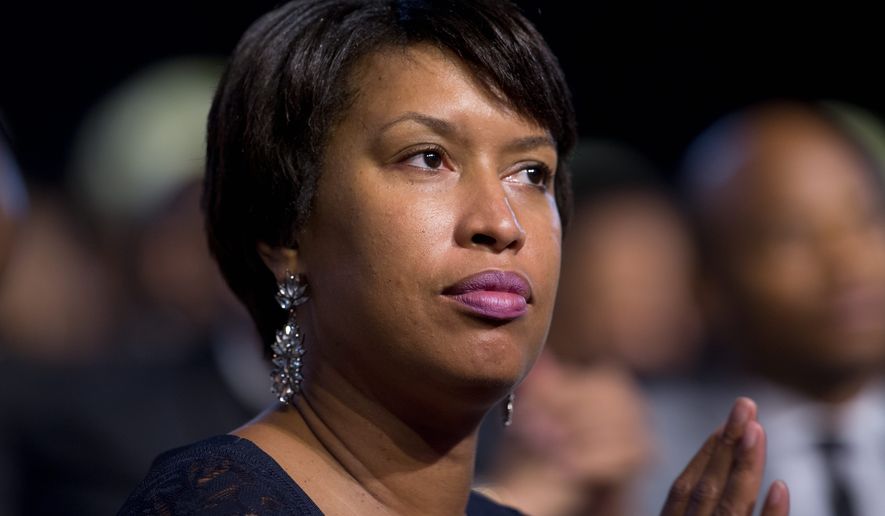D.C. Mayor Muriel Bowser presented to city lawmakers her $13.4 billion spending plan for fiscal 2017 that includes nearly $29 million for Emergency Medical Services, $2.5 million to add 60 police officers to the force, and a promise to take over the D.C. Jail.
About 10 percent of the budget — $1.3 billion — is directed toward public safety. It would provide $2.5 million to train and hire 30 additional 911 call takers, and $12 million for a third-party ambulance initiative that would put more emergency units on the streets during peak times and allow EMTs to train without disrupting service.
“It’s a good time in D.C., but you can’t sit on your laurels and go back to bad habits,” Ms. Bowser said of writing the budget while the city holds a General Fund balance of about $2.17 billion that has grown by $300 million under her watch.
The budget must be approved by the D.C. Council, and Thursday was the first time lawmakers had a chance to examine details of the mayor’s spending plan.
“At first blush, it looks very sound,” said council Chairman Phil Mendelson, at-large Democrat.
The money for Emergency Medical Services comes on the heels of the former director of emergency medical services, Dr. Jullette Saussy, blasting the fire department for its unwillingness to let her access data she needed to assess medics’ performance.
On the police side, the fiscal 2017 budget would provide $8 million for the District’s DNA crime lab and $3.5 million for additional crime fighting technology.
The budget includes Ms. Bowser’s initiative to take over the D.C. Jail’s Correctional Treatment Facility. Currently, that part of the jail is run by the private contractor Corrections Corporation of America. The annex of the main jail holds about 500 inmates, but has a capacity of 1,300.
The space would be used to house inmates in the federal correctional system who are at the end of their sentences as a way to make sure they have a smooth re-entry into society. About 130 people every month return to the District from the federal prison system.
Ms. Bowser said the federal Bureau of Prisons re-entry services have been widely criticized, so spending the last few months in the D.C. Jail as opposed to a federal jail somewhere else in the country will help inmates reconnect with family and services in the city before they get out of prison.
In total, the budget proposal comes in as a 3.5 percent increase over the fiscal 2016 budget, which is relatively low compared to previous years.
Over the last four fiscal years, the budget grew each year by more than 5 percent, peaking in 2012 at 6.86 percent.
And though it’s a smaller increase than past budgets, Ms. Bowser said the budget still funds the programs that will help residents including $386.6 million for Metro, $4.8 million for the Marion Barry Summer Youth Employment Program and $100 million for the Housing Production Trust Fund.
“This budget will reflect the needs of a growing city,” Ms. Bowser said. “In a city as prosperous as ours, every resident deserves a fair shot — no matter who you are, or what ward you live in.”
• Ryan M. McDermott can be reached at rmcdermott@washingtontimes.com.




Please read our comment policy before commenting.